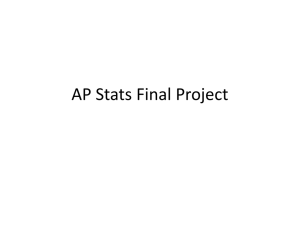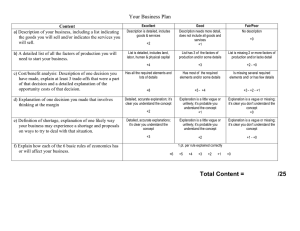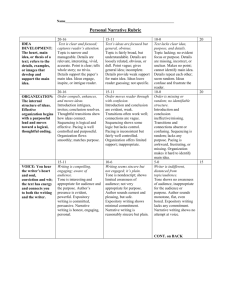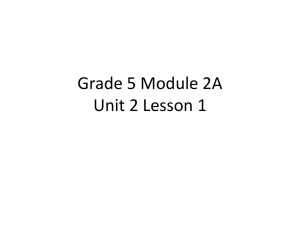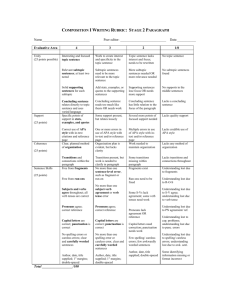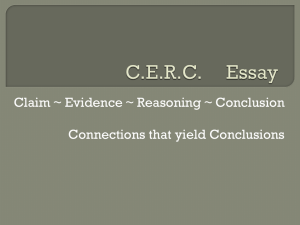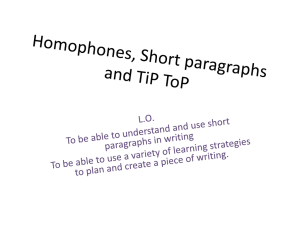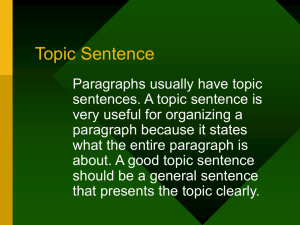File
advertisement
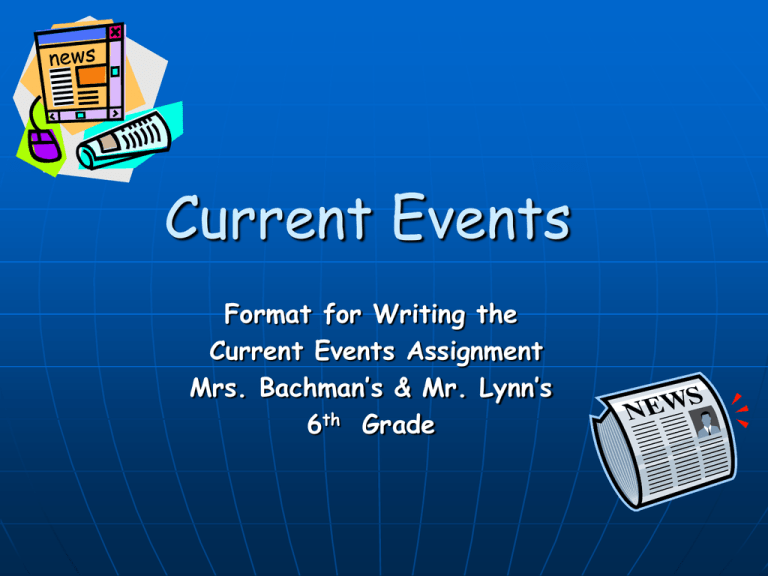
Current Events Format for Writing the Current Events Assignment Mrs. Bachman’s & Mr. Lynn’s 6th Grade How to Write the Current Event Paper You are required to select a current event of interest or concern to you based on a specific subject matter, and write a one page summary. No entertainment, sports, or extreme violence articles are allowed. This grade will count towards your current events/writing assignments grade. The Current Event must be handed in every other Thursday. Late assignments will be given a zero and can not be made up. Current Event Papers will be graded according to the Rubric included in this packet. Make sure you follow the guidelines given to you. Students will be chosen randomly to present their current event article, so be prepared to talk about it. Setting Up Your Current Event Paper Summary Components On a sheet of loose leaf paper, write the following: Your name Date Period Name of the article Author Source Date of the article Write a summary and a reaction in the same paper Include the original article in a separate sheet of paper Setting Up Your Current Event Paper * Cut out or print a copy of your entire article. If it is a newspaper article, tape the entire article to a piece of paper. If it is an article you found on the internet, the full article must be printed out. * Create your summary and reaction paragraphs. Your summary should be at least 8 sentences long. Your reaction should be at least 5 sentences long. Make sure to indent each paragraph. See the “Writing the Summary” and “Writing the Reaction” slides for content information. Appearance/Organization *Hand written * Organized according to directions * Edited for spelling and mechanics Writing the Summary The first sentence of your summary should note the name of the newspaper or website (source), date of the article, author, and name of article. In your own words, write a summary of the article. The summary needs to be at least 8 sentences long. Remember to include the 5 W’s (who, what, where, when, and why, if applicable). When writing your summary, make sure you answer the following questions: •Who is involved? •What happened? •Where did it happen? •When did it happen? •Why did it happen? Writing the Reaction Your reaction to the article needs to include two or more of the following: * Your thoughts about the article * Why this article interests you * Agreement or disagreement with the events/article * Effects on you, our community, or state, now or in the future * Possible remedies or solutions to problem (if any) Make sure that this is written in a paragraph form. This paragraph needs to be at least 5 sentences long. Use examples from the article to support your point of view. This should not be a one-sentence response. Example 1 Every day, I hear from my parents and the news that Americans are experiencing an energy crisis. In the Time magazine article from January 25, 2006 titled Energy Alternatives, I learned that scientists are working to create several alternative sources of energy. One alternative is a new method for harnessing the power of moving water. Though dams have been used to generate energy for a long time, scientists are now trying to make energy from ocean waves. If they perfect a way to generate electricity from waves, it could eliminate America’s need for 21 million barrels of oil per day. Another solution is to use sugarcane to fuel automobiles. Flexcars, which are selling like hotcakes in Brazil, run on both traditional gasoline and sugarcane ethanol. If my parents bought one of those, I might not have to hear about the high price of gas every day. The final alternative energy source the article described was the strangest – methane gas from animal waste! Who knew that animal waste might solve our energy crisis? It sounds gross, but the idea of turning waste into fuel is exciting. The waste can be broken down by bacteria into methane, which can be sued to heat buildings and generate electricity. Amazing! As long as the smell is broken down I don’t see a problem. Every day we use more and more of our earth’s precious oil to heat our homes, fuel our cars, and run our lawnmowers. One day the world’s oil will run out. I think that it is important that we take these alternatives seriously and begin to use them. The sooner, the better! Example 2 “Bush Assures Troops on Iraq,” the article from December 14, 2006, in the Denver Post gives two examples of how difficult it is to be a political leader. One challenge is in choosing how much to commit to plans. In the article, the President was vague about whether or when our troops would be withdrawn from Iraq. He said, “At the appropriate time, I will stand up in front of the nation and say, ‘Here’s where we’re headed.’” I realized that if leaders name specific details of a course of action, they will be held accountable, and be criticized if they don’t or can’t follow through. At the same time, if they are too vague, they can be criticized for that as well. Another challenge is in the pressure to say pleasing things. He declared his “unshakable commitment” to the troops. Then he said he will “give them tools to help them succeed.” However, the article says that the Iraq Study Group Report denies that the government has actually done this. I think the President felt compelled to say something appealing, even though the government’s actions didn’t support his words. I think it would be very difficult to be a strong political leader that is always in the public eye. Everyone has an opinion and a criticism of who you are, what you say, and what you do. Sometimes you have to wonder if what you see and hear is really who they are or are they saying it because they “have to”. I for one do not think being a political leader is a profession I would like to be in. Current Events Rubric Requirements Coverpage (Article) Appearance/ Organization Points The article is printed or cut from a newspaper. All required components are well presented. Written neatly, well Points All required 8 components are Points Several required 6 components are missing. present. 10 Neatly written and 8 Neatly written, but organized, edited, and organized according to needs organization and visually appealing. directions. editing. Summary describes Summary 10 40 Summary describes 35 Summary describes article clearly and in article in own words article, but missing detail using own but lacks detail. information and/or is words including the 6 30 not in own words. 5W's. Conclusion is Reaction 40 Conclusion includes thoughtful, thorough, what was learned, but and includes details lacks detail and/or and/or evidence from evidence from the the article to support article to support reaction. reaction. 35 Conclusion is vague and lacks focus. 30
